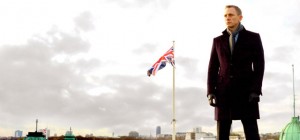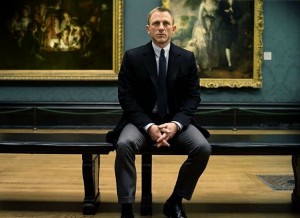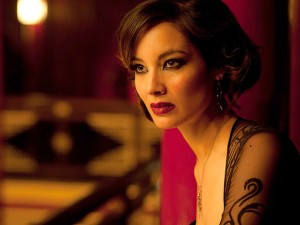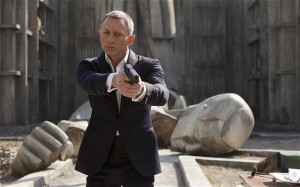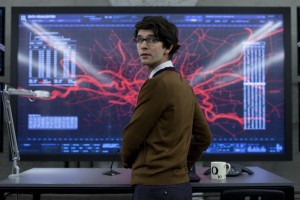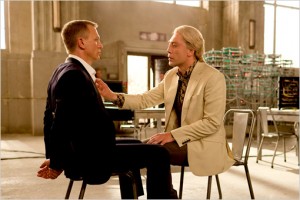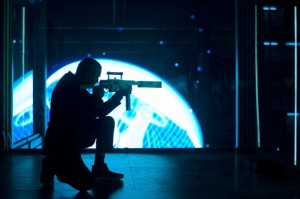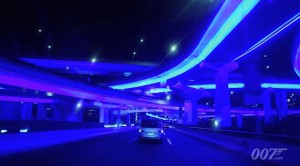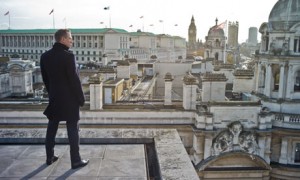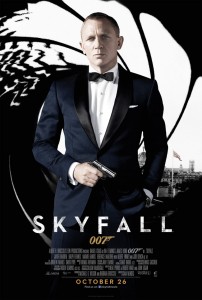 Many spoilers are contained herein. Do not proceed further unless you’ve seen the movie! Seriously! I am not responsible if you keep reading!
Many spoilers are contained herein. Do not proceed further unless you’ve seen the movie! Seriously! I am not responsible if you keep reading!
My initial take on Skyfall, the newest entrant to the James Bond oeuvre, is dynamically neutral: Some amazing components, unbalanced by some terrible aspects.
It’s unquestionably better than almost all previous Bonds, nearly all of which pre-Craig I like much more as concepts than actual movies. It’s also definitely better than Quantum of Solace, which I found regrettably largely forgettable. Harder to compare is Casino Royale. Skyfall doesn’t have the shock and signature scenes of the latter. It does though have the same depth and vigorous exploration of both world themes and meta-reflection on Bond.
I want to like Skyfall a lot because it’s explicitly trying to get at and discuss critical issues around and of the Bond franchise. Just like the past two movies, much attention is paid to the changed geo-political world post-Cold War, and the power of computers and the role of spies and physical violence in the information age. But it also much more overtly tackles another theme of the three: The decline and changed nature of England specifically, and to a lesser extent imperialism in general, as well as the men of empire and how they’re built and deconstructed. The movie also digs deeper into the relationship between Bond and M.
All of this is great, and is done in some really nice scenes with good symbology: Bond and Q at the National Gallery, M testifying before the ministers, Silva’s fantastic island lair, the highly survivable Churchill pug and bunker. You are at a great movie when you’re watching a serious blockbuster action flick that has as its foundational touchstones Churchill, Turner’s The Fighting Temeraire, Tennyson’s Ulysses, and Shelley’s Ozymandias. Incredible stuff.
Unfortunately though, to me there are several serious missteps that negatively deflect the movie from those meditations.
Women
Most disappointingly, Skyfall seemed distinctly a step back for the franchise in its treatment of women, a big claim to make given its fundamental aspects and history. It’s an arguable position, but I thought the general tone fell that way.
It started with Bond telling Eve that some people just aren’t cut out for field work, for no obvious reason. True, she’d accidentally shot Bond, but she’d been clear that it wasn’t a clean shot and M made the decision to take the risk. Eve never seemed rattled or incompetent during the chase. I just didn’t see any real justification for Bond to say that other than her being a woman and him a huge ass of a throwback. When Mallory says the same to Bond I don’t think anyone would question that working a desk is a downgrade and not an option for Bond. Eve doesn’t get even remotely the same consideration.
It’s good that the franchise has re-established Moneypenny as a more credible, empowered entity, and one no longer desperately fawning over Bond. However, it’s unfortunate that in doing so the film converts Eve from a competent female field agent, fairly rare both in the franchise and in general, into a desk jockey.
Much more serious though is Sévérine. This is an obviously severely traumatized woman who’s been a sex slave since she was a small child, and is now the captive property of a deranged super-villain. Bond’s first and only instinct is to get naked and sneak up on her in the shower… The film of course immediately rewards this privacy invasion and insensitivity. I thought it was offensive and unsophisticated on Bond’s part, but more importantly on the film’s part, and an extremely unfortunate scene in its execution. Of course Sévérine is also shortly thereafter summarily killed as the inconsequential aftereffect of a madman’s parlor game. Not only does Bond not react, the film doesn’t react. She’s killed in a moment’s blink, awkwardly slumps there in an undignified death, and immediately becomes as much part of the background as the broken Ozymandias surrounding her.
This handling of Sévérine exemplified the franchise’s much-deplored historical treatment of Bond girls: They have no agency or background of their own, exist only to serve Bond sexually, and are immediately discarded upon their inevitable death. To be clear, I’d be fine if the film’s argument is that Bond has this inhuman aspect about him. It makes him a more unpleasant character than people might want to admit, but that’s his legacy, and after the two previous movies one well constructed and carrying some depth and shading. A major draw of Casino Royale and Quantum of Solace was precisely their long study of how Bond wound up that way.
But the film itself treats Sévérine as an object, and a disposable one at that. There’s a difference, it’s an important one, and that’s the major problem with the franchise: Not that Bond treats women this way, but that the films do.
Believability
The film’s closing treatment of M was also a letdown in accord with the general dumbing-down of its female characters. To me it also over-stretched the suspension of disbelief. It was ridiculous that she and Kincade went traipsing through the pitch black moor with flashlight blazing. Granted she had been shot, but overall it painted her with a disappointing air of incompetence in her last moments. I’ve never had MI6 training and my immediate thoughts as soon as Kincade picked up the light were: “That’s going to be visible for miles on the moor…” and “It’s going to be really stupid if Silva can track them because they’re bumbling around with the light.”
In general, I thought there were several instances like this of characters acting with a level of incompetence entirely out of line with their characters. As another example, who in their right mind would just connect the laptop of a super-villain and known uber-uber-hacker to the primary MI6 network, as Q does? That wouldn’t even fly in any actually existing modern day DoD facility, and their administrators aren’t exactly computing super-geniuses. You could probably argue that Q felt he could contain it but if so that point and its arrogance should have been made explicit. As-is, he just came off as a hugely incompetent idiot despite the franchise’s obvious intent to the contrary.
The final standoff at the Skyfall estate I also found to be somewhat more outlandish than the majority of the three most recent movies, and specifically the first two thirds of this one. It wasn’t terrible, but it was all a bit too clean, impersonal, and magically easy for the Craig-era Bond. The Kincade character also came out of nowhere and, although not unreasonable, diluted what should have been a focus on M, Bond, and Silva. The whole thing also reeked implausibly of Batman. Although presumably faithful to the novels, most of Bond’s background revealed here should have been avoided in favor of not painting him as the government sponsored UK caped crusader…
As another small point that bothered me quite a bit, I felt like there were consistency problems with Bond’s gunshot wounds. The amount of scarring and its placement seemed to vary over the course of the film, though I’d have to watch again to double check.
Shanghai
The film does though do many things really well. As noted in the opening, it is a great exploration of personal and imperial decline, as well as espionage and security in the information age. A number of arguably smaller but still thought provoking moments are also sprinkled throughout those bigger themes. In particular, it said a lot about M and raised a number of questions about how to view her when she revealed she’d purposefully given up Silva to the Chinese.
Silva is also perhaps the most interesting and well motivated Bond villain ever. His crusade is so personal as to be worlds more believable, credible, and threatening than any I can recall. The literate play is also great with him as the consummate foil for Bond, embracing, extending, and reflecting all the latter’s traits: Bisexual slaver, betrayed agent, hyper-competent professional, powerhouse of the cyber rather than physical, natty dresser. It doesn’t hurt that he has the most interesting lair of all the Bond villains, his abandoned island with its shattered propaganda statues and exposed racks of server equipment.
Somewhat more superficially, the entire sequence from Bond entering Shanghai through to capturing Silva featured gorgeous exotic backgrounds and framing. Lighting is a huge part of this and is done superbly in the establishing shots throughout the mega-city, the car surveillance, the shadow fight with Patrice, the casino. It’s all beautiful, menacing, and generates enormous unique character for each venue. The darkened fight with Patrice also features captivating, novel choreography. Bond and his villains have come a long way from Cold War gunfights and Greco-Roman homoerotic wrastlin’.
Verdict
Ultimately, Skyfall is definitely worth watching and almost a truly great movie, it’s just uneven. In some ways it excellently carries forward the project embarked upon with Casino Royale to modernize and deepen the franchise, giving depth to both the world and its characters as it explores significant themes. It’s exactly what I’m always looking for: A serious action movie that’s also serious literature. In other ways though it takes several steps back from that progression, in particular the franchise’s limited successes at depicting women as actual human beings, and skin-deep portrayal of Bond as invulnerable, infinitely capable superman. I would guess some of those negative issues will fall away a bit over time in recalling this specific movie, but they set some troubling precedents for the trajectory of future Bond installments.
PS: As last small points, all the small franchise references managed to be just quiet enough to not be annoying, and are fairly cute for a 50th anniversary movie. However, I would have been way more excited and would have more readily overlooked some of the outlandish nature of the Skyfall estate scenes if the producers had been able to engage Sean Connery as Kincade…
